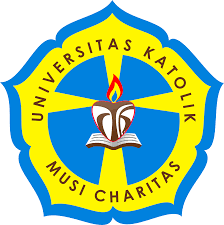MENDORONG KESADARAN KESEHATAN MENTAL MELALUI KEGIATAN SAGITA RUN
DOI:
https://doi.org/10.32524/jamc.v9i1.1449Keywords:
community service; healthy lifestyle; mental health; SAGITA Run; SDG 3Abstract
Purpose: This community engagement initiative was implemented to enhance public awareness of mental health and healthy lifestyles, particularly in response to the rising prevalence of non-communicable diseases (NCDs) and psychological stress in urban environments.
Design/Methodology/Approach: A community-based participatory approach was employed, involving collaboration among students, faculty members, and local residents in Bandung. The program, known as SAGITA Run, was designed as an inclusive recreational running event integrated with health education. Digital tools such as Google Forms and promotional platforms including WhatsApp and social media were utilized to facilitate registration, coordination, and participant engagement.
Findings: The activity attracted 150 participants. Post-event surveys (n = 51) indicated that 100% of respondents reported increased awareness of healthy living practices, while 98% perceived direct health benefits. Moreover, all respondents expressed willingness to participate in future editions of the event.
Practical Implications: The implementation of SAGITA Run illustrates the effectiveness of low-cost, student-led initiatives in delivering public health education. It also provides students with meaningful service-learning experiences that promote both civic engagement and academic integration.
Originality/Value: This program offers a replicable model for higher education institutions seeking to align academic learning with community needs, contributing directly to the realization of Sustainable Development Goal 3 (Good Health and Well-Being).
References
Bringle, R. G., & Hatcher, J. A. (1996). Implementing service learning in higher education. The Journal of Higher Education, 67(2), 221–239. https://doi.org/10.1080/00221546.1996.11780257
Dinas Kesehatan Kota Bandung. (2022). Profil Kesehatan Kota Bandung 2022. https://dinkes.bandung.go.id
Halim, V. I., Evangelique, M., & Mulia, F. (2024). Inisiasi Mahasiswa UNPAR terhadap Kesehatan Mental melalui Kegiatan “SAGITA” untuk Terwujudnya SDG 3. Prosiding SENAPAS, 2(1), 209–216. https://doi.org/10.572349/kultura.v2i1.650
Kementerian Kesehatan Republik Indonesia. (2018). Hasil Utama Riskesdas 2018. Badan Penelitian dan Pengembangan Kesehatan. https://kesmas.kemkes.go.id/assets/upload/dir_519d41d8cd98f00/files/Hasil-riskesdas-2018_1274.pdf
Mikkelsen, K., Stojanovska, L., Polenakovic, M., Bosevski, M., & Apostolopoulos, V. (2017). Exercise and mental health. Maturitas, 106, 48–56. https://doi.org/10.1016/j.maturitas.2017.09.003
Oja, P., Kelly, P., Pedisic, Z., Titze, S., Bauman, A. E., Foster, C., ... & Stamatakis, E. (2015). Associations of specific types of sports and exercise with all-cause and cardiovascular-disease mortality: A cohort study of 80,306 British adults. British Journal of Sports Medicine, 51(10), 812–817. https://doi.org/10.1136/bjsports-2016-096822
Pretty, J. N. (1995). Participatory learning for sustainable agriculture. World Development, 23(8), 1247–1263. https://doi.org/10.1016/0305-750X(95)00046-F
Schuch, F. B., Vancampfort, D., Rosenbaum, S., Richards, J., Ward, P. B., & Stubbs, B. (2016). Exercise for depression in adults: A meta-analysis of randomized controlled trials adjusted for publication bias. Journal of Psychiatric Research, 77, 42–51. https://doi.org/10.1016/j.jpsychires.2016.02.023
United Nations. (2015). Transforming our world: The 2030 Agenda for Sustainable Development. https://sdgs.un.org/goals
World Health Organization. (2021). Noncommunicable Diseases Country Profiles 2021. https://www.who.int/publications/i/item/9789240034059
World Health Organization. (2022). World mental health report: Transforming mental health for all. https://www.who.int/publications/i/item/9789240049336
World Health Organization. (2024). Deinstitutionalize mental health care, strengthen community-based services. https://www.who.int/southeastasia/news/detail/12-03-2024-deinstitutionalize-mental-health-care--strengthen-community-based-services--who
Yorio, P. L., & Ye, F. (2012). A meta-analysis on the effects of service-learning on the social, personal, and cognitive outcomes of learning. Academy of Management Learning & Education, 11(1), 9–27. https://doi.org/10.5465/amle.2010.0072
Downloads
Published
How to Cite
Issue
Section
License
Copyright (c) 2025 Jurnal Abdimas Musi Charitas

This work is licensed under a Creative Commons Attribution-ShareAlike 4.0 International License.
















_1.png)




